Description
ABSTRACT
The Right to Privacy as a Human Right in Nigeria and Consideration of Class Suits as an Enforcement Option
Uche Val Obi SAN*
Right to privacy has been held to be a fundamental right of the citizen … Life is precious in itself. But life is worth living because of the freedoms, which enable each individual to live life as it should be lived. The best decisions on how life should be lived are entrusted to the individual. They are continuously shaped by the social milieu in which individuals exist.
– Justice Chandrachud
The growing sophistication of information technology with its capacity to assemble, evaluate and distribute information on individuals has introduced a sense of urgency to the demand for legal frameworks surrounding these phenomena. Additionally, new developments in technology have intensely increased the level of information generated by each individual. Computers linked together by sophisticated networks with innovative processing infrastructure can create retrievable records on any person without the need for a central computer system. With these developments, it has become essential for jurisdictions worldwide to recognise and treat information privacy as a human right. This article analyses the jurisprudential basis of privacy as a human right. It highlights Class actions as a means of enforcement of this right, while identifying its inadequacies under the Nigerian Constitution and entire legal framework.
Keywords: Privacy, Information technology, Human right.
INTRODUCTION
According to UNICEF, human rights are standards that recognise and protect the dignity of all human beings. Human rights govern how individual human beings live in society and with each other and their relationship with the State and the obligations that the State have towards them.1 On the other hand, privacy is often understood to be a fundamental human right that underpins freedom of association, thought and expression, as well as freedom from discrimination.2
Of all the human rights in the international catalogue, privacy is perhaps the most difficult to define and circumscribe.3 Privacy has its roots deep in history.4 These protections primarily focused on the right to solitude. Description of privacy as a right has come up in some Charters of countries.
*FCIArb. Managing Partner, Alliance Law Firm; with contribution from Adedoyin Fadare and Musa Kalejaiye.
- United Nations International Children’s Emergency Fund (UNICEF), what are Human Rights: accessed 11 November 2021.
- Office of Australian Information Commissioner, what is Privacy: accessed 11 November 2021.
- James Michael, ‘Privacy and Human Rights’ [1994] UNESCO 1.
- The Bible has numerous references to privacy. There was also substantive protection of privacy in early Hebrew culture, Classical Greece and ancient China.

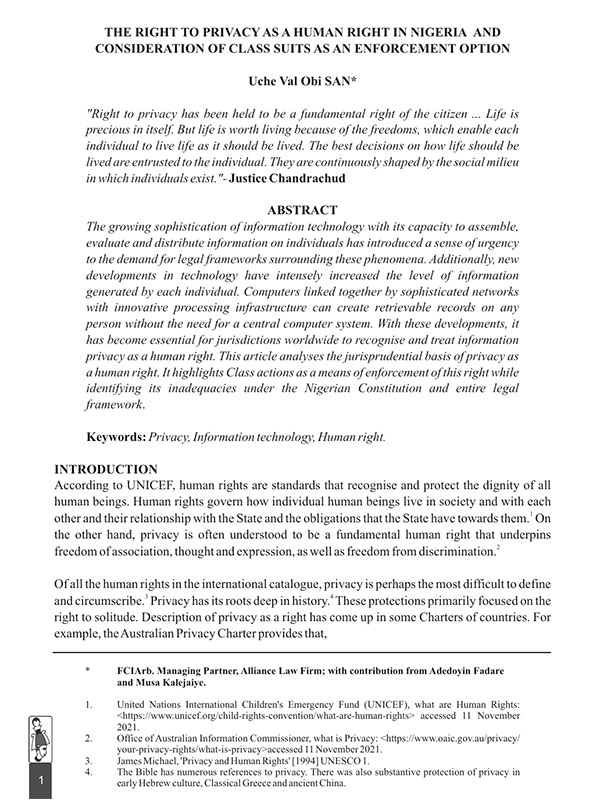
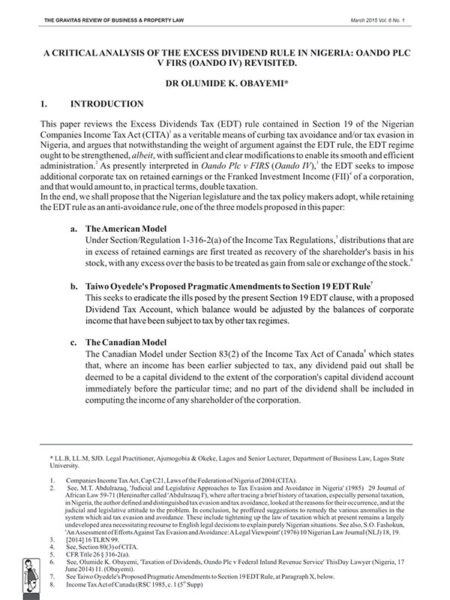
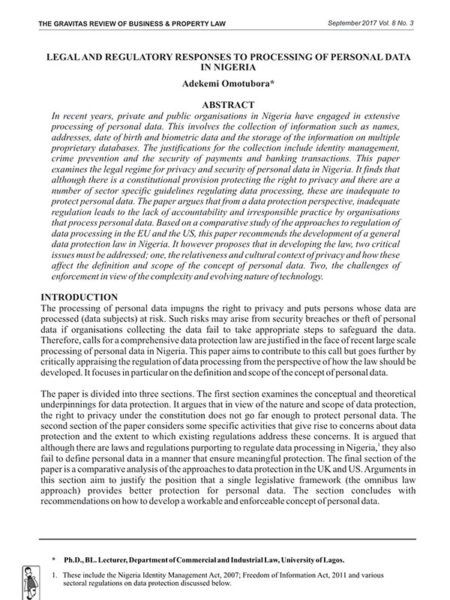
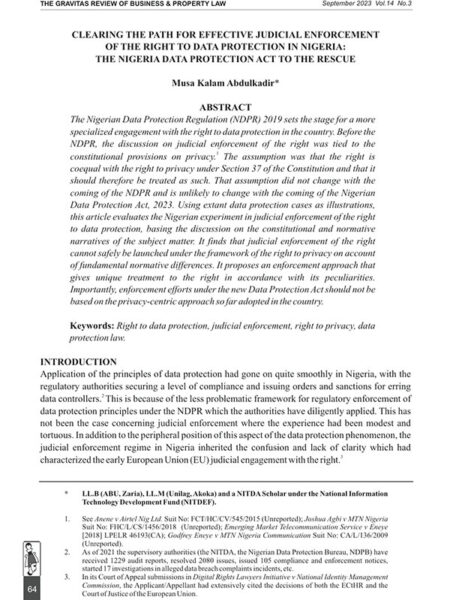
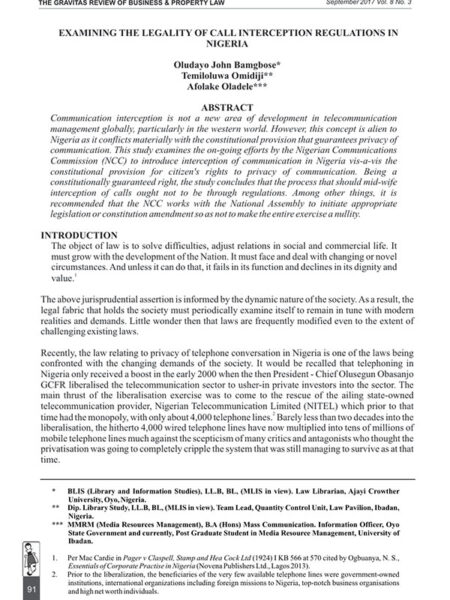


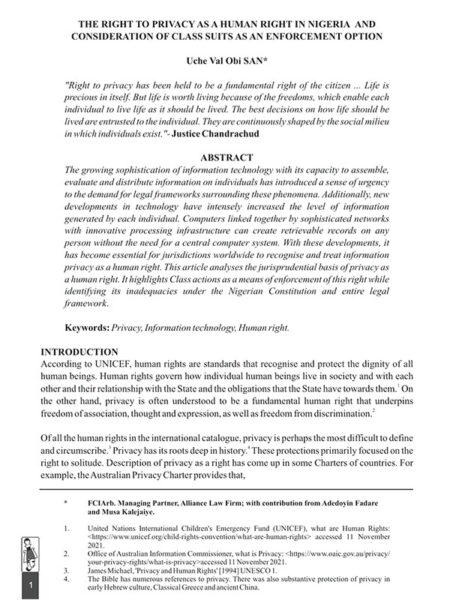
Reviews
There are no reviews yet.